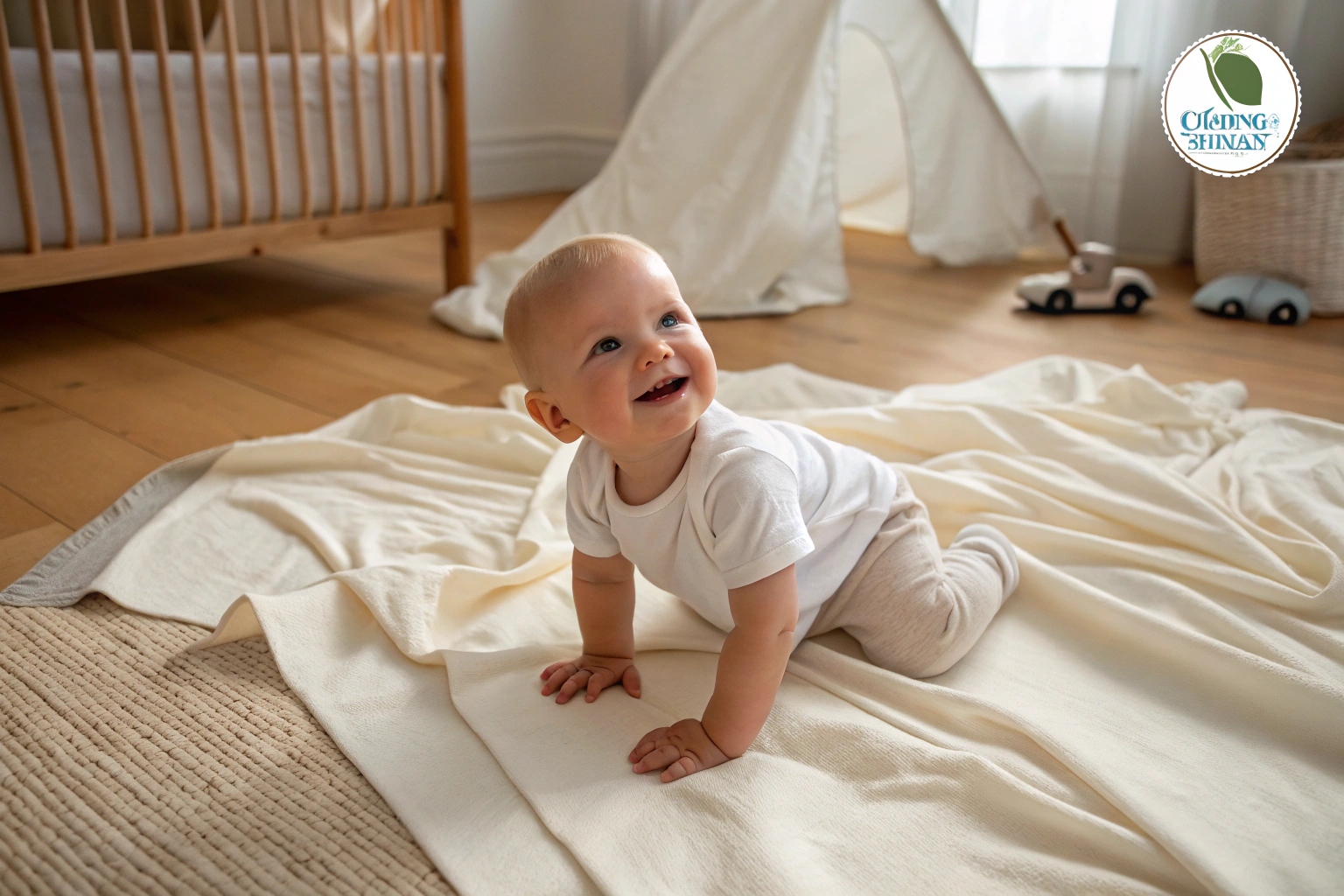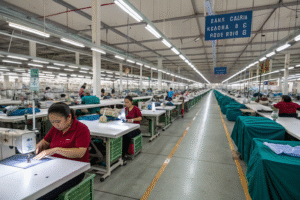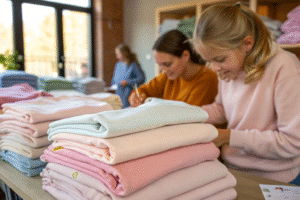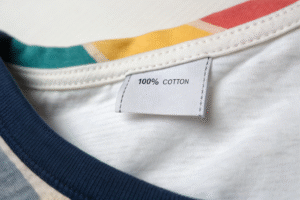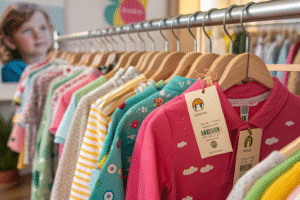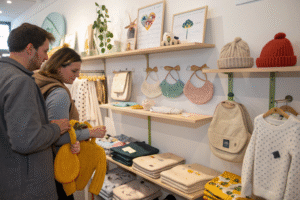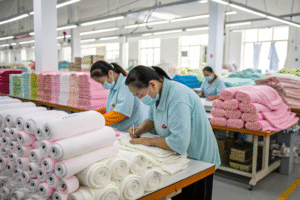Not all cotton is created equal. When it comes to dressing babies, the difference between conventional and organic can mean everything.
Organic T-shirts are perfect for children because they protect delicate skin, avoid harmful chemicals, and promote sustainability from the very first layer.
As a garment supplier serving premium kidswear brands across the U.S. and Europe, I’ve seen how organic apparel delivers safety, quality, and long-term value for families and businesses alike.
What makes organic cotton safer for babies’ skin?
Babies have delicate skin that absorbs more and reacts faster. What touches them matters—right down to the fibers in their clothes.
Organic cotton is safer for babies because it’s grown without toxic chemicals, processed gently, and hypoallergenic—reducing the risk of skin irritation and allergic reactions.
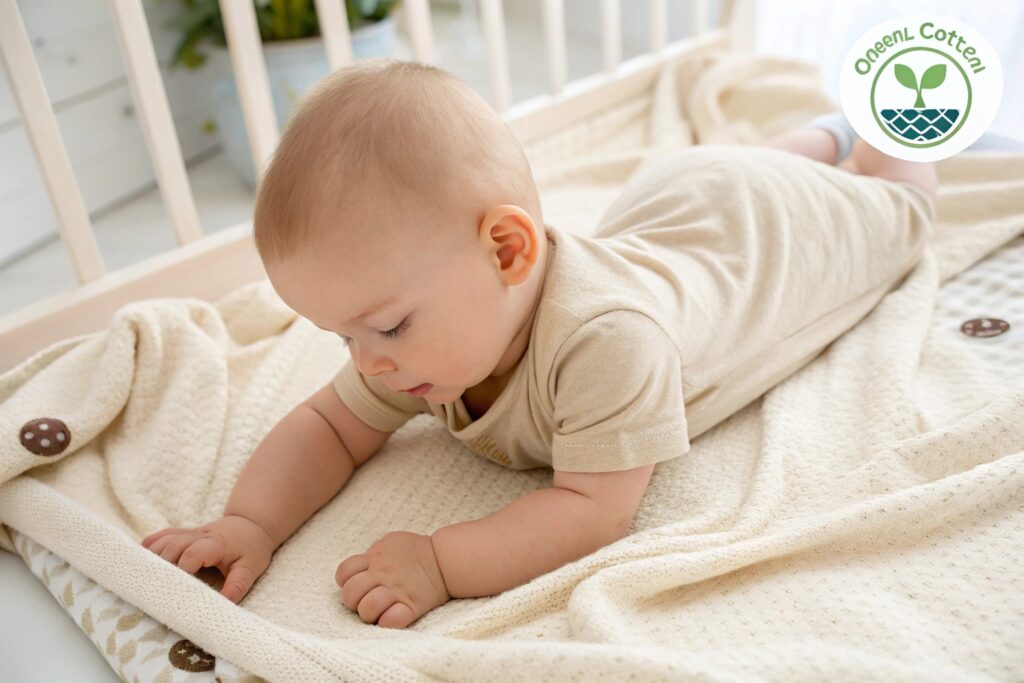
How do pesticides and chemical residues in conventional cotton irritate infant skin?
Conventional cotton is one of the most pesticide-heavy crops on Earth. Even after processing, chemical residues—like formaldehyde, azo dyes, or chlorine bleach—can remain in the fabric. For adults, this may not trigger issues. But babies? Their skin barrier is still developing. At Fumao Clothing, we’ve worked with dermatologists to test our organic cotton T-shirts on infant skin. The results? No redness, itching, or inflammation. This isn’t marketing—it’s biology.
What steps are taken in organic cotton processing to preserve fabric purity?
True organic garments go beyond just farming. The processing phase avoids heavy metals, artificial softeners, and optical brighteners. We use GOTS-certified dye houses that work with low-impact dyes and plant-based finishes. This ensures no chemical off-gassing or irritation. Our factory runs separate lines for organic babywear to prevent contamination. Clients sourcing organic T-shirts from us often request third-party tests to prove chemical-free status. We welcome it—transparency builds trust.
Are organic T-shirts better for sensitive newborns?
Newborns can’t tell you what’s bothering them. But the wrong T-shirt might show it—in rashes, fussiness, or poor sleep.
Yes—organic T-shirts are better for sensitive newborns because they are softer, purer, and more breathable, supporting comfort and reducing inflammation risks.
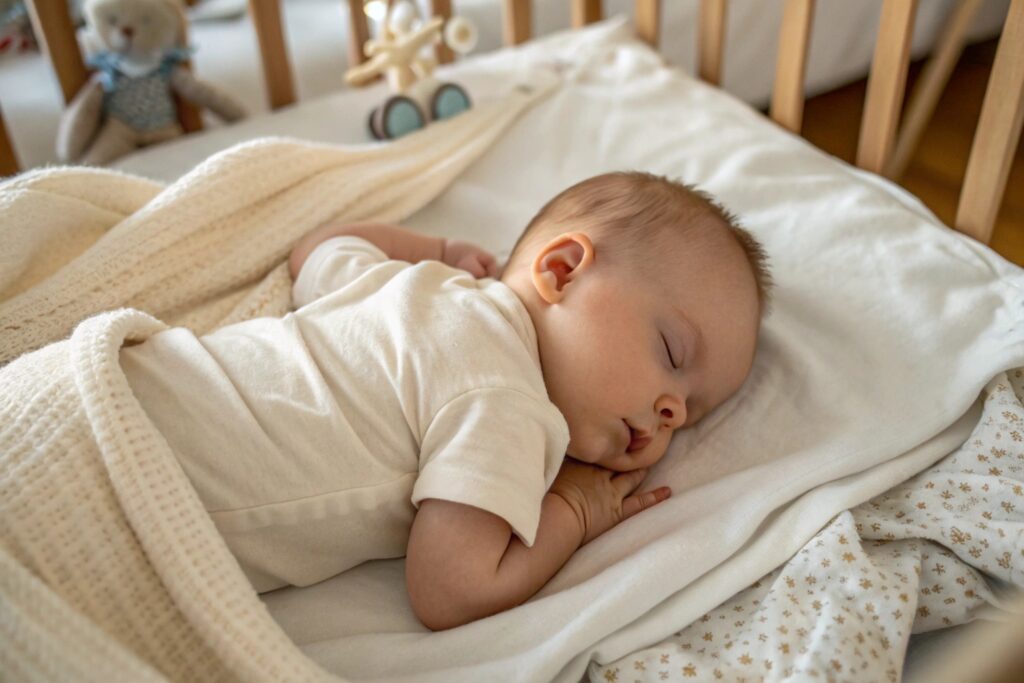
Why do pediatricians and midwives recommend organic clothing for at-risk or preemie babies?
Preemies and infants with eczema, cradle cap, or diaper rash are extra vulnerable. Many health professionals now advise avoiding synthetic blends or chemically treated cotton. Organic cotton—especially ring-spun and combed—offers a smooth, non-abrasive surface. For our U.S. buyers who work with hospitals and NICUs, we provide 160–180 GSM organic T-shirts with no tags, flat seams, and wrap stitching. These aren’t fashion pieces—they’re comfort tools.
How does fabric softness impact newborn sleep and mood regulation?
Newborns are hypersensitive to texture. A rough seam or scratchy neckline can wake them, upset them, or cause contact dermatitis. Organic cotton naturally feels softer due to longer fiber length and chemical-free processing. One client from Texas told me their brand saw a 30% increase in repeat orders after switching to organic T-shirts—because parents noticed better sleep quality in their babies. That’s not just customer satisfaction—it’s product validation.
How do organic baby clothes support sustainability?
Parents want the best for their kids—but now they also want to leave them a better planet.
Organic baby clothes support sustainability by reducing water usage, eliminating toxic runoff, protecting farmworkers, and lowering carbon emissions in the supply chain.
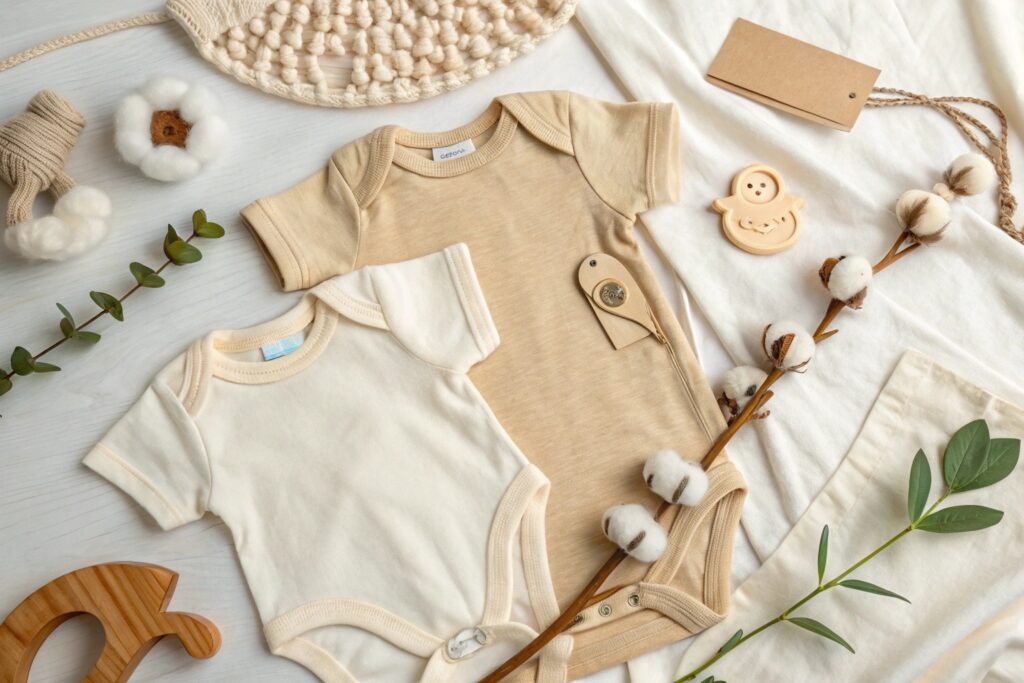
How is organic cotton farming better for the environment compared to conventional cotton?
Organic cotton uses 91% less water, no synthetic fertilizers, and promotes crop rotation—preserving soil health and local biodiversity. Unlike conventional farms that create pesticide runoffs contaminating rivers, organic fields stay clean. Our partner farms in Xinjiang and India are audited annually and irrigated responsibly. Buyers who source organic T-shirts from us often include these eco-facts on their product labels—it’s become part of the marketing story.
What makes the production of organic T-shirts more ethical?
It’s not just about the soil—it’s about the people. Organic certifications like GOTS require fair wages, safe working conditions, and no child labor. At Fumao, we undergo social compliance audits and invest in local sewing cooperatives. That’s part of why global brands trust us to handle organic lines. When you order an organic baby T-shirt from us, you’re supporting a system that values people as much as product.
Why should retailers offer organic infant T-shirts?
Organic babywear is no longer niche—it’s an expectation. Parents are asking for it, and brands that provide it stand out.
Retailers should offer organic infant T-shirts to meet rising consumer demand, reduce return rates, and position themselves as responsible, health-focused brands.
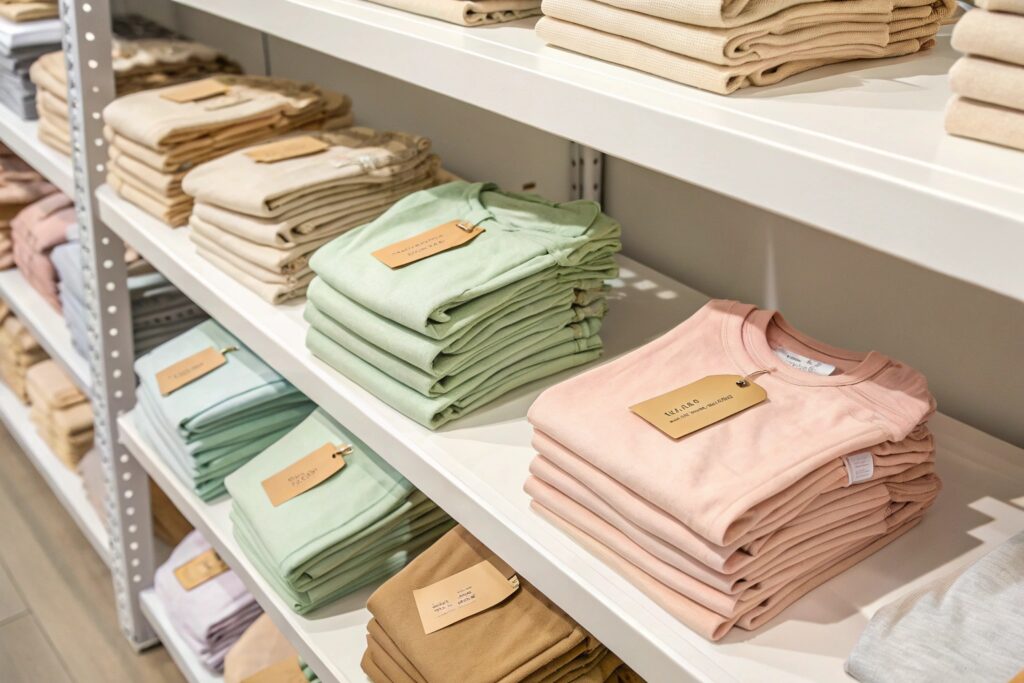
How does organic babywear improve brand trust and customer loyalty?
Parents remember brands that prioritize their child’s health. Organic clothing adds a layer of perceived (and real) value. It justifies higher prices and deepens emotional connection. One of our American clients rebranded their basics line to fully organic and saw a 48% increase in email subscriber retention. Why? Parents don’t shop casually for their kids. They want alignment. Offering organic infant T-shirts communicates care, credibility, and quality.
What business advantages come from selling certified organic products?
Certified organic labels like GOTS or OEKO-TEX offer two advantages: consumer confidence and export compliance. On platforms like Amazon or Walmart, certified organic listings rank better and face fewer policy rejections. On Shopify, “organic” is one of the most searched filters for babywear. At Fumao Clothing, we provide full documentation with every bulk order so retailers can publish those certifications confidently. This drives conversions, builds brand authority, and helps you compete in the crowded kidswear market.
Conclusion
Organic T-shirts offer a simple upgrade with lasting benefits—for your child’s skin, your peace of mind, and the world they’ll grow into. It’s not a trend. It’s the new standard.

